企業戦略 2021.08.27
CS32 海の武士道 2(“My Lucky Life ”)Bushido of the Sea 2
For those who prefer to read this column in English, the Japanese text is followed by a British English translation, so please scroll down to the bottom of the Japanese text.
日本を代表する彫刻家、画家であり、また「道程」「智恵子抄」などで著名な高村光太郎は、教科書にも多くの作品が掲載されている近現代を代表する詩人でもある。彼の有名な詩「道程」は、「僕の前に道はない 僕の後ろに道はできる」という言葉から始まっている。
この「道程」とは、「ある目的・目的地に至るまでの道のりや過程」を意味する言葉であるが、無論英語「Road」の意味の「道」や「道のり」のことではない、「人生で歩む道」のことである。「私が進む道、目指している人生という道には目的地のような具体的なものはない。自分が歩いた後にこそ、自らが切り開いた道ができる」ということであり、だからこそ「人生は己自らが積極的に切り開いて進んで行くものであり、誰かが用意した道など存在しない、自分が歩んだその道筋にこそ、人生という『道』ができる」ということである。
ここで言う「道」とは、紀元前500年頃の古代中国春秋時代の哲学者、「道教」の祖である老子(ろうし)の教えに由来する。老子は、「人が従うべき摂理として『道』があり、その摂理を守ることができる状態を『徳』という」と説いた。この二つの言葉からその統合概念である「道徳」という言葉が出来上がった。
この「道(どう)」という言葉は、日本では「精神、肉体の鍛錬によって成し遂げられる境地への鍛錬の過程」という意味でよく使われている。その一つに「武士道」がある。この「武士道」という言葉には、厳密な定義は存在せず、「武士」という言葉が歴史に顕われた鎌倉時代、「道理」という言葉が「武士が守るべき精神的規範」という意味を持って出来上がり、この「道理」の「道」と「武士」が合わさって「武士道」という概念が形成されたようである。言葉は時代によって大きく変遷する。この「武士道」も同じである、その時々の時代背景によって解釈が大きく異なって位置づけられたが、その精神的な主柱である、「従うべき摂理」という概念は揺らぐことはなかった。
この「武士道」と対比される言葉に、西洋の「騎士道」がある。どちらも、「武勲」を誉れとして名誉を重視する言葉であるが、武士は「荘園の領主」と「荘園を護る」ために誕生した存在であるため、その忠誠を領主に誓う。一方、騎士は「キリスト教の聖地への巡礼者を護る」為に発生、そして発展した存在であり、その部隊が「騎士団」として組織形成されたこともあり、騎士の忠誠は神へのものであって、領主とは「一定の契約関係にある」ところが、同じ「道(どう)」を持ち同様の存在を有する観念でありながら、「武士道」と「騎士道」が違うところである。
そのため「騎士」は、まずキリスト教徒であって「宗教戦士」であるという位置づけである。しかし、武士は宗教を自由に選択できる。また、領主からの命令が「神の心、良心に反するもの」であれば、「騎士」はその命令を実行しなくても良いとされる一方、武士にとっては領主からの命令は絶対である。
しかし、二つの「道(どう)」は、「武士として、また騎士として、己の信念に恥じない行為を貫かなければならない、『従うべき摂理』」という点では同じ概念である。
現代では、「常識」と同じ概念の言葉として使われている「道理」という言葉も、武士が誕生した鎌倉時代には、前述のとおり「武士が守るべき規範」という意味で使われていて、それが後年「ものごとの正しい筋道、人としておこなうべき正しい道」=「常識」という概念が強くなってきた歴史的な背景がある。
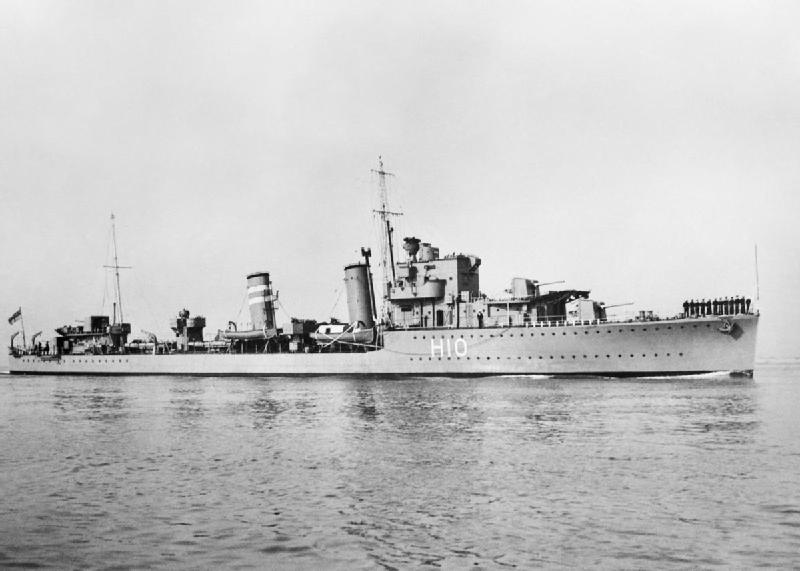
英国海軍駆逐艦「エンカウンター」The Royal Navy destroyer HMS Encounter
1.サムエル・フォール元海軍中尉(フォール卿)
英国の外交官、駐クウェート大使、駐スウェーデン大使を歴任した、サムエル・フォール卿は、第二次世界大戦、1942年3月のジャワ沖海戦(スラバヤ沖海戦)に従軍した際に乗船していた駆逐艦「エンカウンター」(HMS Encounter)が旧日本海軍によって撃沈され漂流、翌日、付近を航行中であった「エンカウンター」を撃沈した旧日本海軍の駆逐艦「雷」(いかづち)に救助され、捕虜となった。
その時の様子が描かれた彼の著書、その日本語版が「ありがとう武士道(My Lucky Life)」(麗澤大学出版会(刊) サム・フォール(著) 中山 理(監訳) 先田 賢紀智(訳))である。最初のページにある、「ありがとう武士道」日本語版発刊に寄せた「献辞」には以下の一文が記されている。
日本の読者の皆様へ
私は、本書を、大戦中、私の命を救って下さった、日本帝国海軍少佐、故工藤俊作に捧げます。そして、武士道という偉大な精神をつくり上げられた日本及びすべての日本人に、深甚の謝意と尊敬の念を申し上げたいと思います。
サー・サム・フォール
そして「原版(英語版)”My Lucky Life”」の献辞には次の言葉が記されている。
私の人生を幸福に恵まれたものにしてくれた妻メレテ、我が子のスティナ、サム、アンナ・キャサリーナとヘレナに、また私の命の恩人である大日本帝国海軍少佐、故工藤俊作に本書を捧げる。
サムエル・フォール卿の「雷」工藤艦長への想いが伝わってくる。
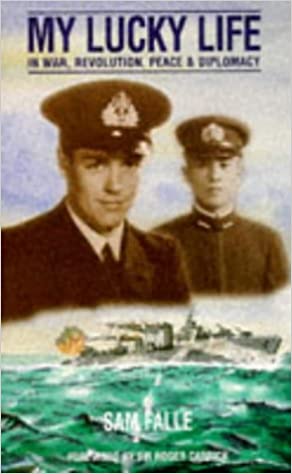
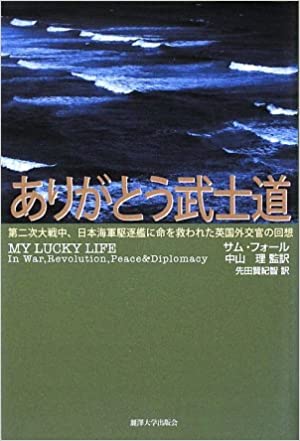
2.米国海軍協会発行月刊誌「プロシーディングス」
サムエル・フォール卿は、1874年創刊された「米国海軍協会」(United States Naval Institute, USNI)が発行する月刊誌、「プロシーディングス」の1987年新年号に「武士道(Chivalry)」と題する、工藤艦長を讃えた7ページにわたる文章を投稿した。
2008年サムエル・フォール元海軍中尉(サムエル・フォール卿)の来日で話題になり、多くの人が、サムエル・フォール卿が「『雷』工藤艦長の武士道精神に基づく救出劇」について米国海軍関係の有力雑誌に投稿したという事実を知るところになったが、筆者はその原文が紹介された書籍、資料を目にすることはできなかった。
「リスクマネジメントの本義」は、「原始データに触れることが第一歩」である、「プロシーディングス」(1987年新年号)からサムエル・フォール卿の投稿文の一部を引用したい。その投稿は以下の冒頭文から始まっている。
Chivalry
By Sir Samuel Falle
January 1987 Proceedings Vol. 113/1/1,007
During World War II, the Japanese were portrayed as brutal, subhuman savages—the hordes of Attila or Genghis Khan. Certainly they did terrible things, but I was fortunate enough to see something different. It is called “chivalry,” which the Oxford Dictionary defines as a “medieval knightly system, with its religious, moral, and social code; ideal knight’s characteristics.” I see it as compassion and magnanimity toward a beaten enemy.
(「米国海軍協会『プロシーディングス』1987年新年号」より引用)
(筆者訳)
武士道
サー・サムエル・フォールによる
1987年1月 Proceedings Vol.113/1/1,007
第二次世界大戦中、日本人は残忍で人間以下の野蛮人、つまりアッティラやチンギス・ハーンの大群のように描かれていました。確かに日本人はひどいことをしましたが、私は幸運にも違うものを見ることができました。それは「武士道」と呼ばれるもので、オックスフォード辞典によると「宗教的、道徳的、社会的規範を備えた中世の武士制度、理想的な武士の特徴」と定義されています。私はそれを、打ち負かされた敵に対する思いやりと大らかさだと思っています。
そして、フォール卿は、工藤俊作艦長の駆逐艦「雷」に救出された時のことを記した箇所では、次のように記している。
Dawn came on 2 March 1942, beautiful, clear, and dead calm. We had been in the water about 18 hours, and there was nothing to be seen. We waited in silence and watched the sun climb in the heavens . Doc had his medical kit with him, complete with syringe and enough morphia to finish us all off. By that time, according to all logic, there was no hope at all, and yet only one of our number asked for a shot. Doc rightly refused and persuaded our colleague to give it a bit longer. It grew hotter, the sea was calm and shimmered in the sunshine. We became drowsy; I recall that I felt neither hunger nor thirst.
It must have been about 1200, for the sun was vertical and we were just south of the Equator. About 200 yards away we thought we saw a Japanese destroyer. Was she a mirage? We all saw her, so perhaps she was real, but our first emotion was not joy or relief, for we expected to be machine-gunned. There seemed to be a great bustle on board that ship, but the guns were trained fore and aft. The ship’s sailors were lowering rope ladders all along the side of the ship. They were smiling, small brown men in their floppy white sun hats and too-long khaki shorts. The ship came closer. We caught hold of the rope ladders and somehow managed to scramble aboard. We were covered with oil and exhausted. The Japanese sailors surrounded us and regarded us with cheerful curiosity. They took cotton waste and spirit and cleaned the oil off us; they actually did this for us, firmly but gently. It was—extraordinary as it is to relate—a friendly welcome.
I was given a green shirt, a pair of khaki shorts, and a pair of gym shoes. Then we were escorted to a large space amidships and politely invited to sit down in comfortable cane chairs. We were served hot milk, bully beer, and biscuits. After a while, the captain of the destroyer came down from the bridge, saluted us, and addressed us in English. I do not recall his exact words, but it went something like this: “You have fought bravely. Now you are the guests of the Imperial Japanese Navy. I respect the English Navy, but your Government is very foolish to make war on Japan.”
If that fine officer is still alive, I would like to meet him and thank him. He searched for survivors all day, stopping to pick up even single survivors, until his small ship was overflowing. An awning was spread over the foc’sle to protect us from the sun; lavatories were rigged outboard; cigarettes were handed out; and, by a biblical type of miracle, our hosts managed to give us all food and drink. (There were about 300 of us.) The only order we were given was not to smoke after dark lest ”English submarine” should see a lighted cigarette. The Japanese did not know, it seems, that there were no “English submarines” in the Java Sea. Yet they had continually stopped to rescue every man they could find.
Thanks to this destroyer and other Japanese ships, the Encounter only lost seven men and the Exeter a surprisingly small number also. The survivors from the Pope were rescued by a Japanese ship two days later.
(「米国海軍協会『プロシーディングス』1987年新年号」より引用)
(筆者訳)
1942年3月2日の夜明けは、美しく澄んでいて、とても穏やかだった。私たちは18時間ほど海に浸かっていたが、何も見えなかった。私たちは黙って太陽が天に昇るのを待っていた。ドクター(軍医)は医療キットを持っていて、注射器と私たち全員を殺すのに十分なモルフィネを持っていた。どう考えても、この時点では希望はないと思われた、その時ある一人に注射を打ってくれと頼まれた。しかし、ドクターは当然のようにそれを断り、同僚にはもう少し様子を見るようにと説得していた。暑くなってきたが、海は穏やかで、太陽の光を受けてキラキラと輝いていた。私たちは眠くなり、空腹も喉の渇きも感じなかったことを覚えている。
太陽が真上に上った、私たちは赤道のすぐ南にいたので、12時頃だったと思います。約200ヤード先に日本の駆逐艦が見えた気がしました。それは蜃気楼だったのでしょうか?私たちは皆、駆逐艦を見たので、おそらく駆逐艦は実在したのでしょうが、私たちの最初の感情は、機銃掃射を受けることを予期していたので、喜びや安堵ではありませんでした。その艦の上はとても慌ただしそうでした。艦の砲塔は前部にも後部にも装備されていました。船員たちは、船の側面に沿ってロープのはしごを下ろしていた。笑顔の小柄な褐色の男たちは、ペタペタとした白い日よけの帽子をかぶり、長すぎるカーキ色の短パンをはいていた。船が近づいてきた。私たちは、はしごにつかまり、どうにかして船に乗り込んだ。油まみれで疲れきっていた。日本の乗組員たちは私たちを取り囲み、明るい好奇心で私たちを見守ってくれた。彼らは、綿の布巾とアルコールを持ってきて、私たちの油を落としてくれた。実際に、しっかりと、しかし優しくやってくれた。それは、語り継ぐことができないほど友好的な歓迎でした。
私は緑色のシャツとカーキ色の短パン、そして体育館用の靴を渡された。そして、船内の広いスペースに案内され、座り心地のよい籐椅子に座るように丁寧に勧められた。そして、ホットミルク、ビール、ビスケットなどが出された。しばらくすると、駆逐艦の艦長が艦橋から降りてきて、私たちに敬礼し、英語で挨拶をした。正確な言葉は覚えていませんが、次のような内容でした。「あなた方は勇敢に戦ってきました。これからあなたたちは大日本帝国海軍のゲスト、大切な賓客です。私は英国海軍を尊敬していますが、あなた方の政府は日本に戦争を仕掛けるなんて、とても愚かなことです」。
その立派な将校がまだ生きていたら、ぜひ会ってお礼を言いたいものだ。彼はその日は一日中、生存者を探し、一人でも生存者がいればエンジンを止め救い上げて、小さな船が溢れかえるほどでした。日差しを避けるためには、私たちのために船首上甲板には日よけが張られ、船外に向けてトイレが設置され、タバコが配られ、聖書に描かれている奇跡のように、私たちをもてなしてくれた人達は、私たち全員になんとか食べ物と飲み物を与えることができたのです。(そこには私たち300人がいましたから)私たちに与えられた唯一の命令は、「イギリスの潜水艦」に火のついたタバコを見られないように、日没後はタバコを吸わないことだった。日本人は、ジャワ海に「イギリスの潜水艦」がいないことを知らなかったようです。潜水艦を心配しながらも、その後も彼らは必死に一人残らず救助していきました。
この駆逐艦と他の日本船のおかげで、エンカウンター号は7人、エクセター号も驚くほど少ない人数しか失わなかった。ポープ号の生存者は2日後に日本船に救助されました。
3.昭和天皇の英国訪問
1998年英国並びにデンマークより,昭和天皇・皇后に対して訪問の招請があり、5月23日から6月5日の予定で、ポルトガル、英国、デンマークを訪問されることが決まった。旧日本軍による虐待を受けたとする元捕虜たちが日本国からの賠償や天皇による謝罪或いはその訪欧阻止を訴える動きが当時あったが、この昭和天皇・皇后の欧州訪問のニュースが流れたことによって英国では一層大きな動きになっていった。
この動きを見たサムエル・フォール卿は、この年1998年の4月29日にも「駆逐艦『雷』による救出劇」のことを「友軍以上に非常に丁重な処遇を日本海軍から受けた」との一文を英国「タイムズ紙」に投稿した。この投稿以降、急速に反日感情は和らぎ、むしろ歓迎ムードが起きていった。「武士道」に対してサムエル・フォール卿の「騎士道」の発露が起こした奇跡であった。
4.駆逐艦「雷」(いかづち)工藤俊作艦長
グローバル・リンクの菅原執行役員が、本年2021年4月9日「CS 22-上杉鷹山の改革 Reform of Yozan Uesugi」と題して投稿したコラムのなかで紹介した山形県の地方、置賜地方、現在の山形県高畠町で工藤艦長は誕生。海軍兵学校に入学、卒業後、戦艦「長門」、数々の駆逐艦、巡洋艦での勤務を経て、1940年11月に駆逐艦「雷」の艦長となった。
1942年3月1日のジャワ沖海戦(スラバヤ沖海戦)では、「雷」は僚艦「電」(いなずま)とともに、英国海軍の重巡洋艦「エクセター」や駆逐艦「エンカウンター」等を撃沈する戦果を挙げた。翌日、付近を航行中の「雷」は多数の漂流者を発見するや直ちに「救難活動中」の国際信号旗をマストに掲げ、艦隊司令部宛に「我、タダ今ヨリ、敵漂流将兵多数ヲ救助スル」と打電した。艦停止後、すぐさま工藤艦長は「敵兵救助」と命令。「敵兵を救助せよ!」(惠 隆之介(著) 草思社(刊))は、この時の工藤艦長について以下のように記している。
工藤は、日本海軍史上極めて異例な号令をかける。「一番砲だけを残し、総員敵溺者救助用意」(しばらくして、前甲板に敵重傷者のための日よけの天幕が張られたため一番砲塔も使えなくなる)
これは何を意味しているか、下の「雷」の写真を見れば一目瞭然である。「雷」には前方に一番砲塔、後方に二番砲塔と三番砲塔が装備されている。当時の「雷」の兵装は、この主砲である「12.7cm砲3基6門」と他には「13mm機銃2挺、61cm魚雷発射管3基9門」だけである、つまり「救助者のために主砲の場所をすべて開放、「機銃と魚雷だけの兵装」にした「病院船」にしたということである。そうでなければ小さな駆逐艦に彼ら400名を超える漂流者全員を収容することはできなかったからである。
更に「一番砲だけを残し」に続いた言葉「総員敵溺者救助用意」である、これは「雷」の220名の乗員のほとんどに「救助に向かえ」と命令しているのである、「何時敵潜水艦に襲われるかもしれない海域」に於いて。このことを一番憶えているのが、極限状態で18時間以上も漂流した、サム・フォール卿他の英国海軍「エンカウンター」の乗組員であった。「自らを危険にさらしながら助けてくれ、手厚く保護してくれた、本当に心の底から感謝している」と。だからこそ戦後もフォール卿は工藤艦長の消息を必死に探し続けていたのであろう。
「友軍でもおこなうかどうか」と考えられる、敵潜水艦などからの攻撃を受ける危険を冒しながら3時間以上に亘り行われた救護活動。その結果、「雷」は自艦の乗組員の倍、422名を救助した。また、その前日には、僚艦の「電」は、撃沈した英国海軍の重巡洋艦エクセターの漂流乗組員376名を救助している。
昨年2020年8月15日本コラムに投稿した「CS13ー『ながい旅』(岡田 資 陸軍中将) “Nagai tabi (Long Journey)” (Lt. Gen. Tasuku Okada)」には、終戦直前、名古屋の東海軍管区司令官であった岡田資中将は、1945年(昭和20年)5月14日の名古屋空襲の際、撃墜され捕虜となった米軍のB-29爆撃機搭乗員27名を自らの命令(旧陸軍内での法的根拠の下)で処刑したことで、戦後、国際法違反(捕虜虐待罪)に問われ、B級戦犯として連合国軍最高司令官総司令部(GHQ)に逮捕され、軍事裁判(横浜法廷)に掛けられたことを記し、その中で次のように裁判の核心部分を書いた。
「単に命令に従っただけ」と主張する検事に対して「ビラ撒きは最初のB29の爆撃と同時に始まっていた。だれがビラを刷ったか、問題ではない。その絵に描かれていることが、人道に反するのを自覚していたかどうかということである。そして事実、その行為を犯した。問題は爆撃を実行したということだ。搭乗員も無差別爆撃の残虐性、非人道性を自覚しながら、実行したのなら、『単に命令に従っただけだから無罪』とは言えなくなる」と、あたかも被告と原告の立場が逆転したような論戦となった。
「人道に反するのを自覚していたかどうかということである。」という言葉である。広島、長崎に原子爆弾を投下、数十万人の非戦闘員を虐殺、畑仕事をしている非戦闘員、登下校する子供達にも機銃掃射を浴びせ殺戮を繰り返したその残虐性とこの工藤艦長達の行動の差、更にその行動は工藤艦長の独断専行ではなかった、電信を受けた「艦隊司令部」が是認していたからである。
その差はどこにあるのであろうか。どこから来るのであろうか。「精神的な主柱」を持つ民か否かということから来るのではないだろうか。「英米」というように、同じ言語を持つからと「同様の国」という表現を日本ではしがちである。しかし、太平洋戦争時の事象に限らず、ごく最近起きた「国のトップとその彼を支持する人達の立ち居振る舞い」といい「すべてが個々人の品格、資質」に任されている国が米国である。筆者の親友を含めて非常に素晴らしい多くの人達がいる一方で「そうではない人達も国の半数近くいる」という米国の残念な現実。
「統合的な精神的主柱」を持たない国と、「騎士道」という精神的な主柱を持つ国との差を、「個人と個人」ではなく「国と国」との関係となった場合、その差を英国と米国に感じるのは筆者だけであろうか。
戦後、工藤元艦長は、故郷の山形に戻り、毎朝、戦死した同期や部下達の冥福を仏前で祈ることを日課にしていた。その後、親戚が開業した医院で事務の仕事を手伝うため埼玉県川口市に転居、多くの人々に惜しまれながら1979年78歳で生涯を閉じた。この頃、海上自衛隊の練習艦隊が英国ポーツマスに入港、練習艦隊司令官に対して英国海軍より「工藤元海軍中佐の消息調査」が依頼された。その依頼主は「元英国のスウェーデン駐在大使であったサムエル・フォール卿」であった。
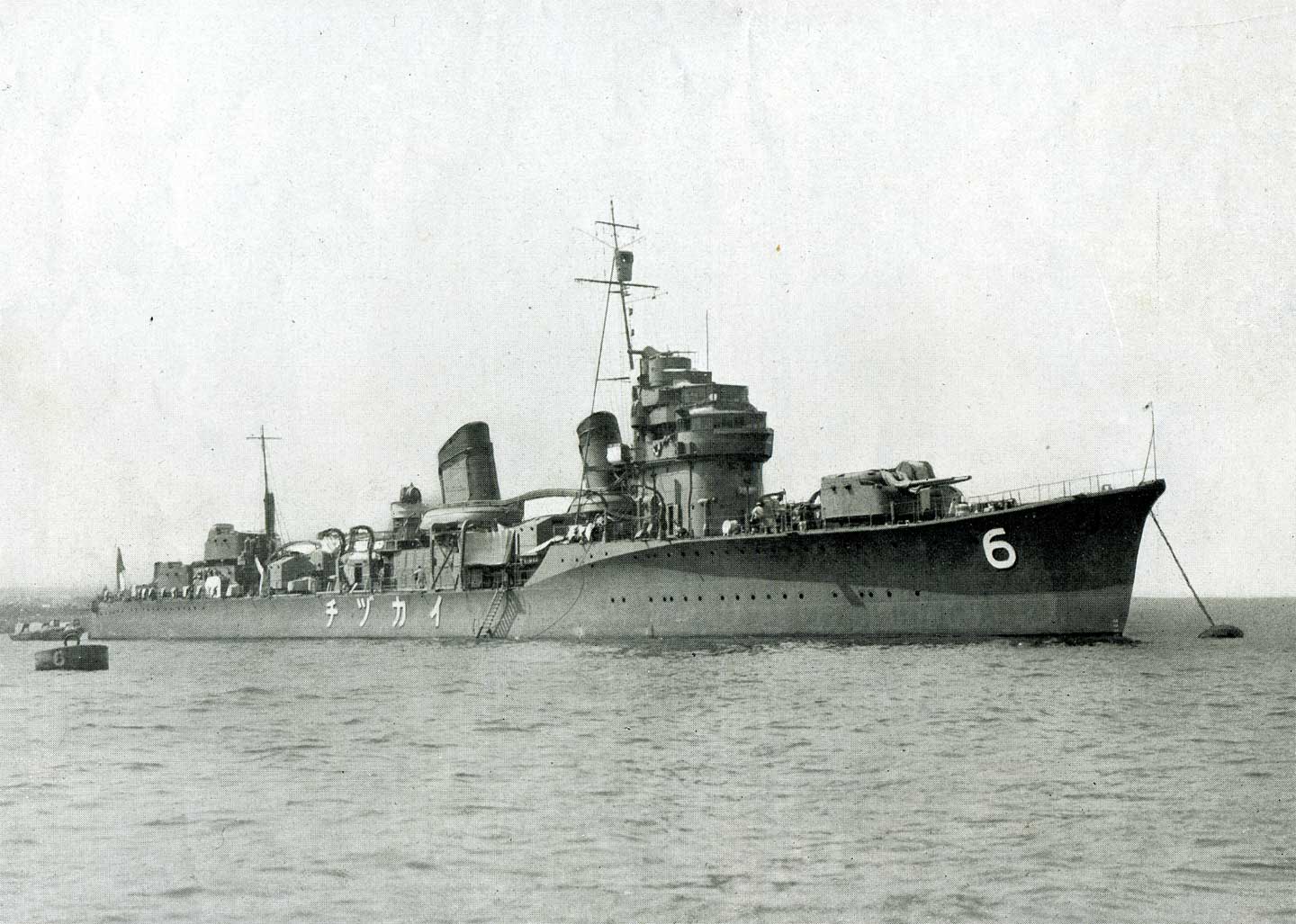
旧日本海軍駆逐艦「雷」The former Japanese Navy destroyer “Ikazuchi”
5.66年ぶりの再会
「雷」に救助されたサムエル・フォール英国元海軍中尉(サムエル・フォール卿)は、前述のとおり戦後は外交官として活躍していたが、恩人の工藤元艦長の消息を探し続けていた。工藤元艦長が既に他界しているということが判明したが、サムエル・フォール卿は、2003年せめて工藤元艦長の墓参と遺族へ感謝を伝えようと来日したが、墓所等が判明しなかった。その後、関係者の懸命な努力の結果、2004年12月に墓所等の所在が判明、フォール卿へ伝えられた。
その後「海軍中佐工藤俊作顕彰会」の招きを受けたフォール卿は、既に89歳という高齢で心臓病も患っていたが、「何としても存命中に墓参したい」という本人の強い意志と、ご家族の支援があり、2008年12月来日、駐日英国大使館附海軍武官や護衛艦「雷」乗組員らの付き添いのもと、埼玉県川口市にある薬林寺の墓所へと足を運び、工藤元艦長に66年越しの感謝の思いを伝え、長年の希望であった「工藤元艦長との再会」が実現した。英国から付き添いをしてきた娘婿ハリス氏は、「我々家族は、工藤中佐が示した武士道の話を何度も聞かされ、それが我が家では家族の文化(Family Culture)を形成している」とインタビューで語っていた。
また、この時行われた記者会見で、フォール卿は「ジャワ海で24時間も漂流していた私たちを小さな駆逐艦で救助し、丁重にもてなしてくれた恩はこれまで忘れたことがない。工藤艦長の墓前で最大の謝意をささげることができ、感動でいっぱいだ。今も工藤艦長が『雷』でスピーチしている姿を思い浮かべることができる。勇敢な武士道の精神を体現している人だった」と語っていた。
サムエル・フォール卿は、それから5年後、2014年2月20日波瀾万丈の人生の幕を閉じた。
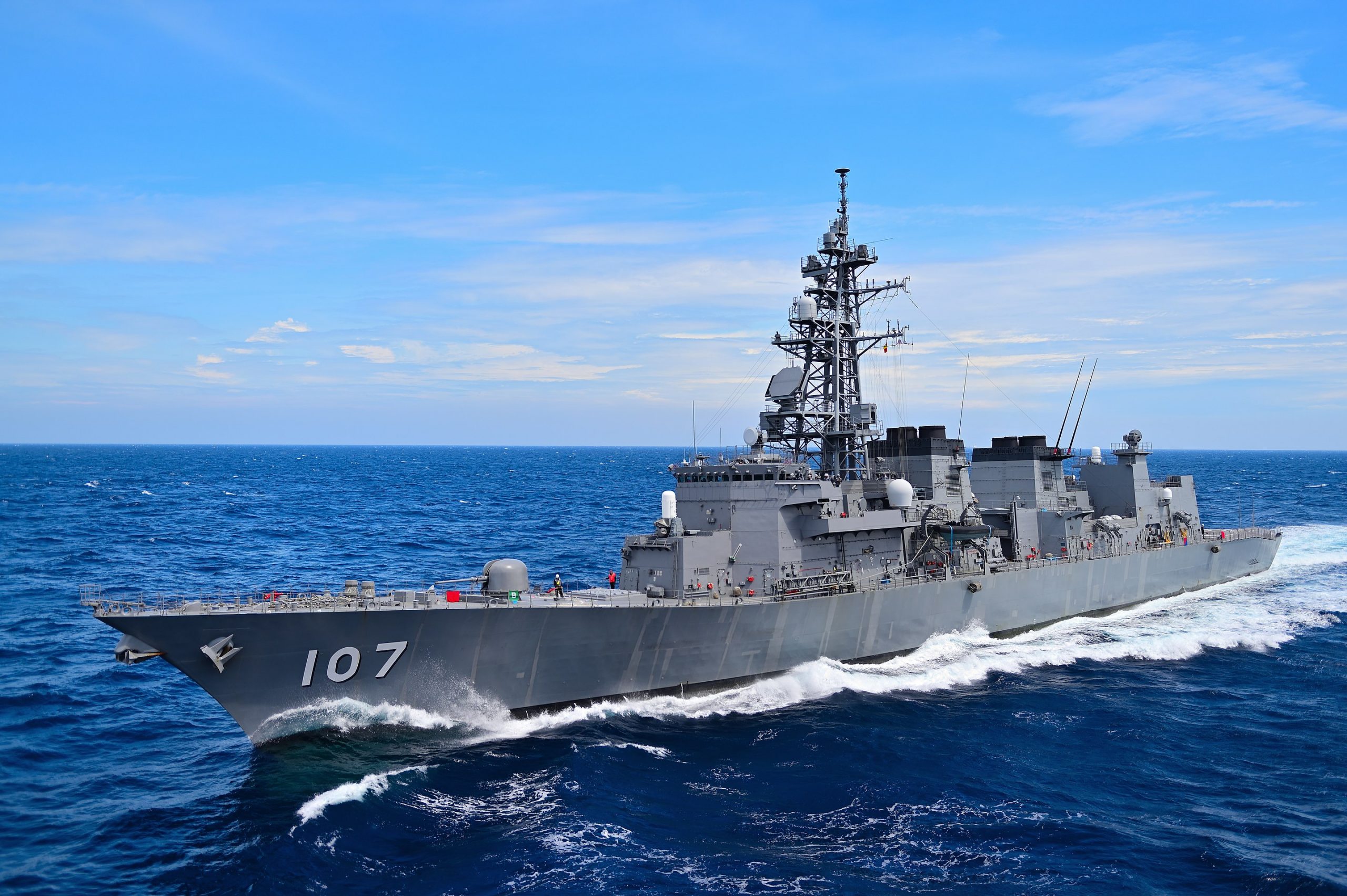
現在の「雷(いかづち)」、海上自衛隊護衛艦「雷」「出典:海上自衛隊ホームページ」
Current “Ikazuchi”, JMSDF destroyer “Ikazuchi” “Source: JMSDF website”.
今回のまとめ
工藤元艦長は、身長は185cmを超え、体重も90kgを超える巨漢であったが、性格は「おおらかで温和」であり、「艦内では鉄拳制裁を厳禁」して、部下には分け隔て無く接していた事から、「工藤が艦長を務めていた艦では、非常に結束力の強い組織が育ち、艦内の士気は高まり、それとともに乗組員の技量や練度も向上していった」と言われている。
筆者が幼い頃、元海軍士官であった父から、以下のような「海軍時代の話」を聞いた憶えがある。
米国の艦艇や戦闘機に、日本海軍の漂流者が発見された時には、徹底的に機銃掃射を浴びせられて、ほぼ全滅したということをよく聞いた。「そうしないと、いつかどこかで生き残った日本兵によって味方がやられてしまう」という恐怖心がそうさせていたんだろう。海上で敵兵を見つけたら、それが漂流中であれ何であれ、全員攻撃するのが米軍だった。だから、サイパンや沖縄が米軍に攻められたとき、自決する人が多かったのではないかな、でも日本海軍は違った。
父はそう言いながら、よく旧日本海軍の軍艦のプラモデルを買ってくれたことをこのコラム記事を書きながら、父の優しい笑顔とともに思い出していた。
前述の「敵兵を救助せよ!」のカバーの裏に、次の文章が記されている。
敗者の悲哀というべきか。
スラバヤ沖海戦のあと、日本海軍は多数の連合国兵士を救助した。
文字どおり武士道が発揮された瞬間であり、世界海戦史上も希な感動的な出来事なのだが、にもかかわらず、なぜかこれまで殆ど語られることはなかった。
筆者は存命の日英の関係者を執念をもって探し出し、歴史の帳の中に埋もれようとしていた数々の事実を明るみに出すことに成功したのである。
この感動的な出来事は「工藤艦長一人」ではなし得ないことである。日頃から結束力が強く士気が高い組織を艦長が創りあげていたからこそできたことである。そういう背景があり、かつ「己の信じる精神的な主柱、『武士道』」を有しているからこそ、「戦い終わって傷ついている敵を眼の前にしたら、『敵も味方も無い』」という理念を持つことができ、自艦の倍の「敵兵」を乗艦させても混乱一つ起きることなく、無事使命を全うできたのではないだろうか。
また、武士道と通じ合う「摂理」を持った「騎士道」精神を育んできた英国の海軍士官であったサムエル・フォール卿であったから、工藤艦長の行動の背景に『武士道』を見たのではないだろうか。そういう精神的な主柱を持つ国民同士だから解りあえたのではないだろうか。「精神的な主柱」が無い国の民にはおそらく解らないことであろう。
この出来事は「戦時下のもの」であるが、企業と企業がぶつかり合う、現代の世界レベルでの企業間競争に於いても事態は同じである。「戦争と同じ」状態と言えよう。
この出来事は、「組織が組織としての力を本当に発揮できる基盤構築に果たす教訓」を現代の人達に教えてくれているのでないだろうか。ただの「感動的な出来事」と捉えるのではなく、捉える「視座」が重要である。企業にとっては、自社の組織が有する強み、弱みを詳細に分析する、リスクマネジメントが必要な所以である。さらにその組織の強みを活かしていくのも、「企業の武士道」ともいうべき、「企業の精神的な主柱」である「企業ミッション」の構築、組織内での醸成、そして組織の末端までの徹底という作業があるからこそできることである。
「戦争」は「非常時」である、しかし現在の社会は戦争とも思しき「非常時の出来事」が頻繁に起きている。その一つが、いま世界中を苦しめている新型コロナのパンデミックである。これをただ「大変」と捉えるか、それとも「大きく変わる」時期という意味の「大変」と捉えるかで、企業の成長ベクトルの方向と強さは変わっていく。
「大きく『良く』変わる」ためには、リスクマネジメントの「現状の強み・弱みの分析」は欠かせない。常にリスクマネジメントを企業戦略の中核に置く必要があるということであり、そのためには、「常に自社のリスクとリスク量を測る仕組み」が必要になってくるのである。だからこそ、グローバル・リンクはそのための方策、キャプティブの設立を推奨しているのである。
執筆・翻訳者:羽谷 信一郎
English Translation
Corporate Strategy (CS) 32 – Bushido of the Sea 2 (“My Lucky Life”)
Kotaro Takamura, one of Japan’s most famous sculptors and painters, is also one of the most famous poets of the modern era, with many of his works appearing in textbooks. His famous poem “The Road” begins with the words “There is no road in front of me, there is a road behind me”.
The word ” Road ” means ” the way or the process of reaching a certain goal or destination “, not of course ” Road ” as in the English word ” Road “, but ” the way of life “.
“The path that I am on, the life that I am aiming for, does not have a specific destination”, it is only after you have walked that you will find the path that you have made.” This is why I would say that “…life is something that you have to actively make your own way through, there is no path that someone else has prepared for you; only the path that you have taken is the ‘path’ of life”.
The word “Do(Road) ” in this context comes from the teachings of Lao Tzu, the founder of ” Taoism “, a philosopher of the Spring and Autumn period in ancient China around 500 BC. Lao Tzu taught that “there is a ‘Way’ as the providence that one should follow, and the state of being able to follow that providence is called ‘Virtue'”. From these two words, the word “morality” was coined.
The word ” Do(Road) ” is often used in Japan to mean “the process of training to a state of being achieved through mental and physical training”. One such example is ” Bushido”. In the Kamakura period (1185-1333), when the word “samurai” first appeared in history, the word ” Do-Ri” was coined to mean “the spiritual code that a samurai should follow”, and the word “Do” in “Do-Ri” and “samurai” were combined to form the concept of “Bushi(Samurai)do”. Words change dramatically with time. The same is true of Bushido, which has been interpreted in different ways according to the circumstances of each period, but its main spiritual pillar, the notion of ” providence to be obeyed “, has never wavered.
In contrast to Bushido is the Western concept of Chivalry. Both terms emphasise honour, but the samurai, who were created to protect the lord of the manor and the manor itself, swear allegiance to the lord. Knights, on the other hand, were created and developed to protect pilgrims to the Christian Holy Land, and their units were organised as “knightly orders”, so their allegiance is to God and they have a “certain contractual relationship” with their lord. This is the difference between Bushido and Chivalry.
A knight, therefore, is first a Christian and then a religious warrior. However, a samurai is free to choose his religion. Also, if an order from the lord is “against the heart and conscience of God”, the knight is not obliged to carry out the order, whereas for the samurai, the lord’s order is absolute.
However, the two ” Dō(road) ” are the same concept in that “as a samurai and as a knight, you must act in a way that is not ashamed of your beliefs, ” a providence to be obeyed “.
In the Kamakura period (1185-1333), when the samurai were first established, the word ” Do-Ri” was used to refer to “the rules that a samurai must follow”, but in later years it came to mean “the correct course of things, the right way to act as a human being”.
1. Former Navy Lieutenant Samuel Falle (Lord Falle)
Sir Samuel Falle, a British diplomat, ambassador to Kuwait and Sweden, served in the Battle of Java (Surabaya) in March 1942, when his destroyer HMS Encounter was sunk by the Imperial Japanese Navy and set adrift. The next day he was rescued and taken prisoner by the destroyer “Ikazuchi” of the Imperial Japanese Navy, which had sunk the Encounter while sailing in the vicinity.
The Japanese version of his book which describes his experiences, is “Thank You Bushido (My Lucky Life)”, published by Reitaku University Press, written by Samuel Falle, supervised by Osamu Nakayama and translated by Kenkichi Sakata.
On the first page of the book is a dedication to the Japanese edition of “Arigatou Bushido”, in which the following sentence is written
Dear Japanese readers
I dedicate this book to the late Shunsaku Kudo, a Major in the Japanese Imperial Navy, who saved my life during the war. I would also like to express my profound gratitude and respect to Japan and all the Japanese people who have created the great spirit of Bushido.
Sir Sam Falle
In the dedication to the original edition of ” My Lucky Life” the following words were written.
I dedicate this book to my wife Merete, to my children Stina, Sam, Anna Catherine and Helena, who have made my life a happy and blessed one, and to the late Shunsaku Kudo, a Major in the Imperial Japanese Navy, who saved my life.
Sir Samuel Falle’s feelings for Captain Kudo of the “Ikazuchi” are palpable in the words.
2. “Proceedings”, a monthly magazine published by the United States Naval Institute (USNI)
Sir Samuel Falle wrote a seven-page tribute to Captain Kudo entitled “Chivalry” in the 1987 New Year’s issue of “Proceedings”, a monthly magazine published by the United States Naval Institute (USNI), which was first published in 1874.
In 2008, with the visit to Japan of Sir Samuel Falle, many people became aware of the fact that Sir Samuel Falle had written an article about the “Bushido Spiritual Rescue of Captain Kudo of the Ikazuchi” for a leading US Navy magazine, but I have not been able to find the original text in any book or document.
The “essence of risk management” is that “access to pristine data is the first step.” So, I would like to quote a part of Sir Samuel Falle’s contribution from the New Year 1987 issue of “Proceedings”. The contribution begins with the following opening sentence.
Chivalry
By Sir Samuel Falle
January 1987 Proceedings Vol. 113/1/1,007
During World War II, the Japanese were portrayed as brutal, subhuman savages—the hordes of Attila or Genghis Khan. Certainly they did terrible things, but I was fortunate enough to see something different. It is called “chivalry,” which the Oxford Dictionary defines as a “medieval knightly system, with its religious, moral, and social code; ideal knight’s characteristics.” I see it as compassion and magnanimity toward a beaten enemy. (quoted in “Proceedings of the United States Naval Institute, New Year’s 1987”)
And in the passage in which Lord Falle describes his rescue by Captain Shunsaku Kudo’s destroyer “Ikazuchi “, he writes;
Dawn came on 2 March 1942, beautiful, clear, and dead calm. We had been in the water about 18 hours, and there was nothing to be seen. We waited in silence and watched the sun climb in the heavens . Doc had his medical kit with him, complete with syringe and enough morphia to finish us all off. By that time, according to all logic, there was no hope at all, and yet only one of our number asked for a shot. Doc rightly refused and persuaded our colleague to give it a bit longer. It grew hotter, the sea was calm and shimmered in the sunshine. We became drowsy; I recall that I felt neither hunger nor thirst.
It must have been about 1200, for the sun was vertical and we were just south of the Equator. About 200 yards away we thought we saw a Japanese destroyer. Was she a mirage? We all saw her, so perhaps she was real, but our first emotion was not joy or relief, for we expected to be machine-gunned. There seemed to be a great bustle on board that ship, but the guns were trained fore and aft. The ship’s sailors were lowering rope ladders all along the side of the ship. They were smiling, small brown men in their floppy white sun hats and too-long khaki shorts. The ship came closer. We caught hold of the rope ladders and somehow managed to scramble aboard. We were covered with oil and exhausted. The Japanese sailors surrounded us and regarded us with cheerful curiosity. They took cotton waste and spirit and cleaned the oil off us; they actually did this for us, firmly but gently. It was—extraordinary as it is to relate—a friendly welcome.
I was given a green shirt, a pair of khaki shorts, and a pair of gym shoes. Then we were escorted to a large space amidships and politely invited to sit down in comfortable cane chairs. We were served hot milk, bully beer, and biscuits. After a while, the captain of the destroyer came down from the bridge, saluted us, and addressed us in English. I do not recall his exact words, but it went something like this: “You have fought bravely. Now you are the guests of the Imperial Japanese Navy. I respect the English Navy, but your Government is very foolish to make war on Japan.”
If that fine officer is still alive, I would like to meet him and thank him. He searched for survivors all day, stopping to pick up even single survivors, until his small ship was overflowing. An awning was spread over the foc’sle to protect us from the sun; lavatories were rigged outboard; cigarettes were handed out; and, by a biblical type of miracle, our hosts managed to give us all food and drink. (There were about 300 of us.) The only order we were given was not to smoke after dark lest ”English submarine” should see a lighted cigarette. The Japanese did not know, it seems, that there were no “English submarines” in the Java Sea. Yet they had continually stopped to rescue every man they could find.
Thanks to this destroyer and other Japanese ships, the Encounter only lost seven men and the Exeter a surprisingly small number also. The survivors from the Pope were rescued by a Japanese ship two days later.
3. Emperor Showa’s visit to the UK
The Showa Emperor and Empress were invited to visit the UK and Denmark in 1998.It was decided that they would visit Portugal, the UK and Denmark from 23 May to 5 June. At the time, there was a movement of former POWs who claimed to have been mistreated by the Japanese military to demand compensation from the Japanese government, an apology from the Emperor, or to prevent the Emperor from visiting Europe.
Sir Samuel Falle, who saw this movement, wrote in the UK’s “Times” newspaper on 29 April 1998 about the “rescue by the destroyer Ikazuchi”, saying that he had been “treated by the Imperial Japanese Navy with more than friendliness and respect”. After this post, anti-Japanese sentiment rapidly eased and a more welcoming mood developed. “This was a miracle of Sir Samuel Falle’s chivalry towards Bushido.
4. Captain Shunsaku Kudo of the destroyer “Ikazuchi”
Captain Kudo was born in the town of Takabatake, Yamagata Prefecture, in the Okitama region of Yamagata Prefecture, which was introduced by Global Link’s Executive Officer Sugawara in his column entitled “CS 22 – Reform of Yozan Uesugi” on 9 April 2021. After entering and graduating from the Naval Academy, he served on the battleship Nagato and on a number of destroyers and cruisers before becoming captain of the destroyer “Ikazuchi” in November 1940.
In the Battle of Java (Surabaya) on 1 March 1942, “Ikazuchi” and her colleague “Inazuma” sank the Royal Navy’s heavy cruiser “Exeter”, destroyer “Encounter” and other ships. The following day, while sailing in the vicinity, the “Ikazuchi” spotted a large number of drifters and immediately raised an international flag on her mast to indicate that she was engaged in rescue operations, and sent a message to Fleet Command stating that she was now rescuing a large number of enemy drifters. After stopping the ship, Captain Kudo immediately gave the order to “rescue enemy soldiers”. “Rescue the enemy!” (written by Ryunosuke Megumi, published by Soshisha), wrote the following about Captain Kudo at this time.
Kudo gave an extremely unusual order in the history of the Imperial Japanese Navy. “Keep the first gun, all hands ready to rescue the enemy drowning victims.”(A short time later, a sunshade tent was put up on the foredeck for the seriously wounded enemy, so the first gun turret could not be used.)
What this means can be seen clearly in the photograph of the “Ikazuchi” below. The “Ikazuchi” is equipped with the first turret at the front and the second and third turrets at the rear. The armament of the “Ikazuchi” at that time was only this main gun, “three 12.7cm guns, six guns”, and the other “two 13mm machine guns, three 61cm torpedo tubes, nine guns”, in other words, the “Ikazuchi” was made into a “hospital ship” by opening up all the places of the main gun for rescuers, “armed only with machine guns and torpedoes”. Otherwise the small destroyer would not have been able to accommodate all 400 or so castaways.
The words “all hands prepare to rescue the enemy drowning victims” which followed “leaving only the first gun” were an order to most of the 220 men on board the “Ikazuchi” to “a hospital ship” in “waters that might be attacked by enemy submarines at any moment”. This was best remembered by Sir Sam Falle and the rest of the Royal Navy crew of the Encounter, who spent more than 18 hours adrift in extreme conditions. A man said, “I am deeply grateful to them for their help and protection at great risk to themselves”. It was for this reason that Lord Falle continued to search for Captain Kudo after the war.
For more than three hours, at the risk of being attacked by enemy submarines, a rescue operation was carried out that would have been difficult even for friendly forces. As a result, the “Ikazuchi” rescued 422 men, twice the number of her own crew. The day before, a consort the “Inazuma” had rescued 376 men from the drifting crew of the sunk Royal Navy heavy cruiser Exeter.
In “CS13 – ‘Nagai tabi (Long Journey)’ (Lt. Gen. Tasuku Okada)”, which was posted in the column on August 15, 2020, just before the end of the war, Lt. Gen. Tasuku Okada, who was the commander of the Tokai Military District in Nagoya, was accused of violating international law (mistreatment of prisoners of war) by executing 27 American B-29 bombers who were shot down and captured during an air raid on Nagoya on May 14, 1945, on his own orders (under legal grounds within the former army). After the war, he was arrested by the General Headquarters of the Supreme Commander of the Allied Powers (GHQ) and tried by the Yokohama Tribunal as a class B war criminal. I wrote;
“In response to the prosecutor’s claim that he was merely following orders, he said: ‘The leafleting had begun at the same time as the first B-29 bombing. It doesn’t matter who printed the leaflets. It is a question of whether they were aware that what they depicted was against humanity. And the fact is that they did. The problem is that they carried out the bombing. If the crew were aware of the cruelty and inhumanity of the indiscriminate bombing, but carried it out, then it cannot be said that they were innocent because they were simply following orders. It was as if the positions of the defendant and the plaintiff were reversed.
“The question is whether they were aware that they were violating humanity.” These are the words. The atrocity of dropping the atomic bombs on Hiroshima and Nagasaki, massacring hundreds of thousands of non-combatants, and repeatedly killing non-combatants working in the fields and children on their way to and from school with machine gun fire, and the actions of Captain Kudo and his men, and the fact that these actions were not the sole responsibility of Captain Kudo, but were endorsed by the “Fleet Command” which received the telegraph.
What was the difference? Where does it come from? Does it not come from a people who have a “spiritual pillar”? In Japan, we tend to speak of “similar countries” because they share the same language, as in “Britain and United States”. However, the United States is a country where “everything is left to the dignity and quality of the individual”, not only the events of the Pacific War, but also the very recent “behavior of the head of the country and those who support him”. While there are many very fine people in the US, including my good friend, the unfortunate reality in the US is that there are nearly half of the country who are not so fine.
I wonder if I am alone in feeling the difference between the UK and the US when it comes to the relationship between “nation and nation” rather than “individual to individual”, between a country without a “unifying spiritual pillar” and a country with a spiritual pillar of “chivalry”.
After the war, ex-Captain Kudo returned to his hometown in Yamagata and made it a daily routine to pray before the Buddha every morning for the souls of his comrades and subordinates who had died in the war. Later, he moved to Kawaguchi City, Saitama Prefecture, to help with clerical work at a medical clinic opened by a relative, and died in 1979 at the age of 78, regretted by many people. Around this time, the Maritime Self-Defense Force’s training fleet arrived in Portsmouth, England, and the commander of the training fleet was asked by the Royal Navy to investigate the whereabouts of former Commander Kudo. The client was “Sir Samuel Falle, former British ambassador to Sweden”.
5. A reunion after 66 years
Lord Samuel Falle, a former Lieutenant of the Royal Navy who was rescued by the “Ikazuchi”, had been active as a diplomat after the war, but was still searching for his lifesaver, former Captain Kudo. It turned out that Captain Kudo had already passed away, but Sir Samuel Falle came to Japan in 2003 to visit his grave and to express his gratitude to his bereaved family, but was unable to find his grave. As a result of the hard work of all concerned, the location of the grave site was found in December 2004, and this information was passed on to Sir Samuel Falle.
Although he was already 89 years old and suffering from heart disease, he was determined to visit the grave while he was still alive, and with the support of his family, he came to Japan in December 2008, accompanied by naval officers attached to the British Embassy in Tokyo and the Japan Maritime Self-Defense Force’s crew of the destroyer present “Ikazuchi”. They visited the cemetery at Yakurinji Temple in Kawaguchi City, Saitama Prefecture, and expressed their gratitude to ex-Captain Kudo over the past 66 years, thus realising their long-held wish to meet him again. His son-in-law Harris, who accompanied him from the UK, told the interviewer that “Our family has been told many times about the Bushido shown by Commander Kudo, and it has formed a family culture in our house”.
At a press conference held at the time, Lord Falle said: “I have never forgotten the kindness shown to us by the small destroyer that rescued us after we had been adrift for 24 hours in the Java Sea. I am very moved to be able to offer my greatest thanks at his grave. I can still picture Captain Kudo giving his speech in the “Ikazuchi”. He was a man who embodied the spirit of brave Bushido”.
Sir Samuel Faure ended his chequered life five years later, on 20 February 2014.
Summary of this issue
Former Captain Kudo was a giant of a man, standing over 185cm tall and weighing over 90kg, but his character was “generous and gentle”, and he “strictly forbade the use of ‘iron’ fists on the ship” and treated his subordinates without distinction.
When I was a child, my father, a former imperial naval officer, told me the following story about his time in the Navy.
When American naval vessels and fighter planes spotted Japanese naval castaways, they were almost completely wiped out by the thorough machine-gun fire they were subjected to. “The fear that if they didn’t, somewhere along the line one of their own would be killed by a surviving Japanese soldier” was probably the reason for this. If they saw an enemy soldier at sea, whether he was adrift or not, they would all attack. That’s why when Saipan and Okinawa were attacked by the US forces, many people probably committed suicide, but the Japanese Navy was different.
My father used to buy me plastic models of warships of the old Imperial Japanese Navy while saying so, and I remembered it with his kind smile while writing this column article.
On the back of the cover of the aforementioned “Rescue the enemy soldiers!”;
The sorrows of the vanquished, I should say.
After the Battle of Surabaya, the Imperial Japanese Navy rescued a large number of Allied soldiers.
It was a moment when Bushido literally came into its own, and a rare and moving event in the history of world naval warfare, but for some reason, until now, little has been said about it.
The author has persistently sought out the surviving Japanese and British officials involved, and has succeeded in bringing to light many facts that had been buried in the annals of history.
This inspiring event could not have been achieved by “Captain Kudo alone”. It was only possible because the captain had created an organisation with strong unity and high morale on a daily basis. Because of this background, and because of his belief in the spiritual pillar of Bushido, he was able to have the philosophy that “when you see the enemy wounded after a battle, there is no friend or foe”, and even with twice as many “enemy soldiers” on board as his own ship, he was able to complete his mission without a single confusion. I believe that this was the case.
Sir Samuel Falle, a British naval officer who had nurtured the spirit of Chivalry with a sense of providence in common with Bushido, may have seen Bushido in the background of Captain Kudo’s actions. I believe that we could understand each other because we are citizens of such a spiritual pillar. “The people of a country without such a spiritual pillar would not have understood.
This incident took place during wartime, but the situation is the same in today’s global competition between companies, where companies clash with each other. It is “like war”.
Perhaps this event teaches us a lesson about how to build the foundations on which organisations can really flourish. It is important not to see this as just an inspirational event, but as a perspective. This is why companies need risk management, a detailed analysis of the strengths and weaknesses of their organisation. It is only through the development of a corporate mission, which is the main spiritual pillar of the company, and its fostering and dissemination throughout the organisation, that the strengths of the organisation can be exploited.
“War is an emergency”, but today’s society is frequently experiencing “emergency events” that seem to be wars. One of these is the covid-19 pandemic that is now afflicting the world. The direction and strength of a company’s growth vector will depend on whether it sees this as a ” disaster ” or as a time of ” great change “.
“In order to do great change for the better”, it is essential to analyse the current strengths and weaknesses of risk management. This means that risk management must always be at the heart of a company’s strategy, and this requires a system to constantly measure the risks and risk appetite of the company. That’s why Global Link recommends setting up a captive to do just that.
Author/translator: Shinichiro Hatani

